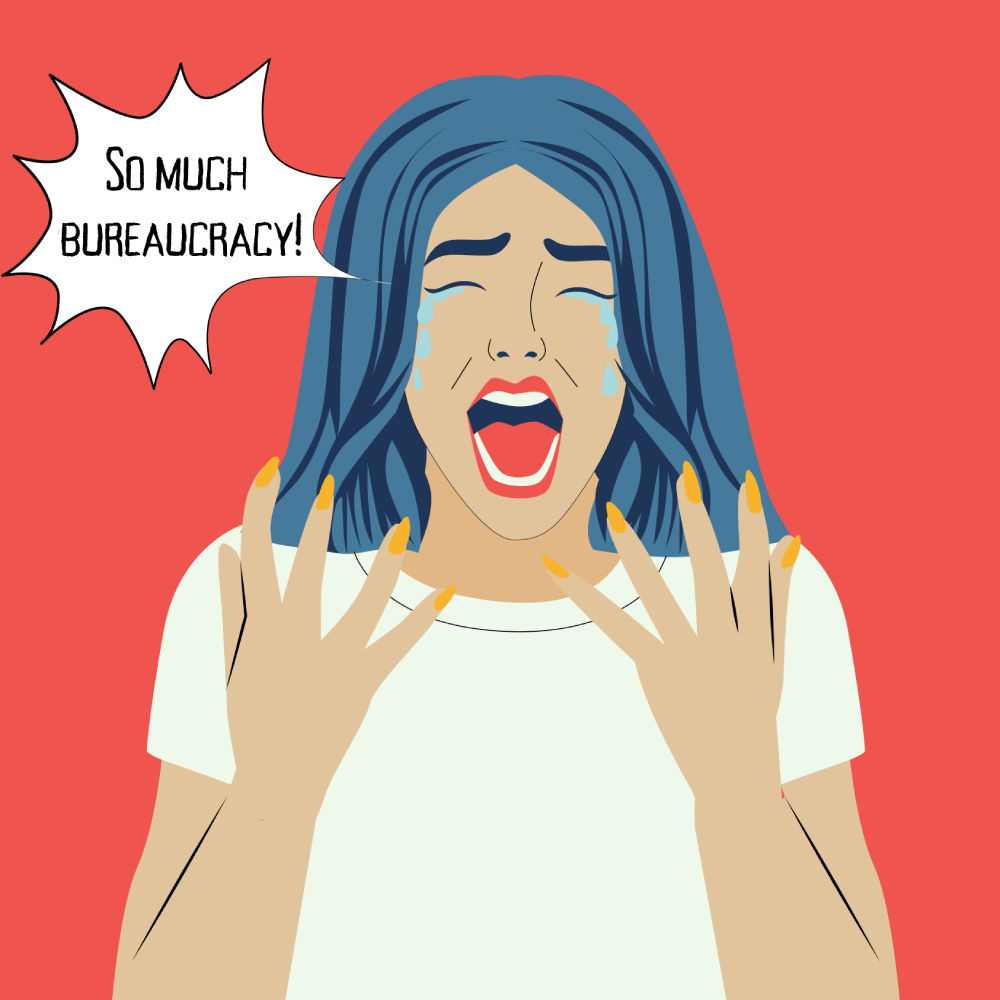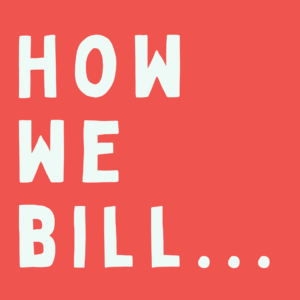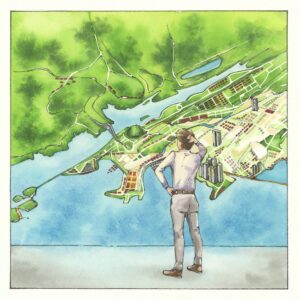When political tides get ready to shift, everybody wonders how it will affect them. The upcoming elections in Panama have prompted many questions about upcoming policy changes to the current immigration laws.
Trying to time the market is a difficult game. But here are our thoughts on what the upcoming elections could mean for those considering when to submit their visa application and which visa program offers the best way forward for their families.
Lost in Transition: The Upcoming Elections in Panama
Panama is one of the top destinations in the world today for retirees, investors, and digital nomads. But the country offers more than the cosmopolitan Panama City, stunning views, and real estate investment options. Panama’s appeal also extends to how it has accommodated foreign residents over the last several years.
But Panama will hold its general elections on May 5, 2024. And if Panama’s election history teaches us anything, the incumbent party is unlikely to retain power in the upcoming elections.
A change in administration often leads to broad and significant policy shifts. And there is a sense that immigration laws could fall within the purview of upcoming changes. This has created a palpable sense of anticipation among people still trying to wrap their heads around the existing immigration laws and plan their residency applications and relocation.
Panama Immigration Laws Are Not Static
Do we expect changes to Panama’s residency programs and immigration laws? The short answer is yes. But that is because the laws are consistently evolving.
The law is dynamic, and this goes beyond introducing new legislation. The ways the immigration department interprets and applies the existing laws also shift over time based on evolving societal norms and – yes, leadership changes.
A key part of Panama immigration lawyers’ job is to remain tapped in and up to date on these latest changes so that we can appropriately advise our clients. And this is not limited to election years.
Past Precedence
One of the most recent major changes to Panama’s immigration laws occurred in 2021. This is when the president signed 2 Executive Decrees changing the popular Friendly Nations Visa. It makes for an interesting case study.
May 2021: The First Change
First, on May 7 the president signed Executive Decree 197 (2021), eliminating the direct path to permanent residency that the Friendly Nations Visa had previously afforded.
The Executive Decree also narrowed the options to qualify for the Friendly Nations Visa program to either a $200k USD real estate investment or a work contract with a Panamanian Company. Now, the requirements were going to be more complicated. And applicants would need to first obtain a 2-year provisional residency permit that could then be extended for a permanent residency permit.
The change was set to go into effect on August 19, 2021.
July 2021: The Second Change
Then, on July 20 the president signed Executive Decree 226 (2021), adding the $200k USD fixed-term deposit (“CD”) at a local bank as a third option to qualify for the Friendly Nations Visa. It also added Peru to the list of countries considered “friendly” to Panama to qualify for the Friendly Nations Visa program.
Executive Decree 226 seemed like sort of a policy rollback, except that it again referenced the elimination of the direct path to permanent residency.
And it also said that the changes would now go into effect on August 7, 2021!
I mention Executive Decrees 197 and 226 for a few of reasons:
First, the year 2021 was notably NOT an election year.
Second, such a dramatic change seemed oddly timed. Panama had gone all-in on its response to the COVID-19 pandemic and was emerging lockdowns that had brought most of the economy to a grinding halt for several months. Lots of people were left scratching their heads as to why the Panamanian government would decide to make it more difficult for applicants from places like countries like the United States and Canada that much more difficult to obtain a permanent residency visa… I have my theories on why they may have made the changes, but it appeared out of touch and irrational.
Third, these changes happened unusually fast, but they were still stretched over a period of 3 months. With Executive Decree 197, lots of people who were on the fence decided to go ahead and initiate their Friendly Nations Visa applications before August 19.
And then when the president signed Executive Decree 226, a bunch of those folks changed their flights to be in Panama before August 7. That first week of August 2021 was probably the busiest week of my career so far!

So, we can see that changes to Panama law can happen any time outside of election years. Those changes may include the laws around legal residency, and they may not always be easy to predict. And even though the changes to the Friendly Nations Visa were implemented extraordinarily quickly, applicants had a couple of months to make arrangements and submit their applications before the changes went into effect.
By the way, the Friendly Nations Visa is still one of the most popular paths to permanent residency for those who qualify. If you have questions about how the Friendly Nations program works today, then be sure to reach out to us for a free consultation.
The Political Pendulum
Immigration policies can indeed and do evolve outside of election years. But it is also true that the Electoral cycles provide a unique window for such shifts to materialize.
As I said, historically, the incumbent party does not win the general elections in Panama. And any time a new administration steps in, they inevitably implement new policies based on their vision of how the government should be run. This can ultimately result in some material pivots on immigration laws.
But while some things probably will under a new administration, this isn’t a reason to delay launching your residency application process. In fact, it is probably a good idea to go ahead and move forward.
Here is why:
- The elections in Panama are slated for May 5, but the new administration will not take office until July 1.
The tenure of the outgoing administration will extend well beyond polling day.
Since most residency applications take a maximum of 6 months to process, a residency application process initiated today will likely be completed before any changes are implemented. - Immigration laws will not necessarily be the new government’s first priority.
Unless a party is specifically running on a platform of immigration reform, it is unlikely that changes to residency requirements will be implemented immediately when the new administration takes office. - There will be signs.
New regulations are not likely to be implemented in a vacuum. Actions taken by the newly elected officials during the transition period could signal the beginnings of policy shifts, precursors of substantial adjustments usually reverberate within political circles before being implemented.
So, if you have an active visa application, it is likely that your attorney may be generally aware of potential changes before they are necessarily announced. - Panama’s main immigration law contains a non-fulfillment clause.
This is what it says in plain English:
“Immigration processes initiated under previous laws will be processed according to the rules established therein, except for matters related to means of challenge.”
That means changes are rarely implemented to an application process already initiated.
For example, when they announced that they would be changing the Friendly Nations Visa in 2021, tons of people rushed to initiate the application process before the change was executed. And when the law did change, it didn’t have any impact on their permanent residency status.
A Silver Lining of Change
Ok, so when it comes to changes to Panama’s immigration laws, it is probably not a question of “if” but “when.” But change does not necessarily mean that obtaining residency will become more difficult. An incoming administration could easily make some small tweaks to the existing legislation that would be welcome. Here are a couple of ideas:
- Clarify that Pensionado Visa holders can get a work permit.
Lots of retirement visa folks would like to stay active and supplement their fixed income by participating in the local economy. - Allow Pensionado Visa applicants to apply for permanent residence with their dependent children.
Currently, they can only obtain permanent residency until the age of 25 under the Pensionado program. - Acknowledge that US Social Security benefits and the Canadian Pension Plan benefits satisfy the lifetime income requirement for the Pensionado Visa.
It doesn’t matter how many of these visa applications an immigration officer processes, we always have to jump through silly hoops to make sure this detail is explicit. - Allow tourists to drive in Panama for the length of their tourist visa.
This is not technically an immigration law issue, but it affects a lot of my clients.
Upcoming Changes to the Golden Visa in 2024
Nobody knows for sure what changes to the Panama residency laws may be in store after the elections, but there is one major upcoming change that we can see from miles away. In October 2024, Panama’s Qualified Investor program (the “Golden Visa”) is set to tighten its gates with a sharp increase in the minimum investment requirement.
Currently, applicants can qualify for this direct-to-permanent residency visa with a real estate investment of $300,000 USD.
That is fairly big ticket. But in October the minimum amount of the threshold investment is set to increase to $500,000 USD, which is sure to price a lot of people out of the market.
By the way, this change was originally scheduled to happen in 2022, but the president extended the $300,000 USD minimum amount for 2 years. In the wake of the COVID-19 lockdowns, this was a decision that didn’t seem out of touch and irrational at all.
In any case, the good news is that potential applicants have had ample time to reframe their strategies. In fact, you still have time to buy a property and qualify for this permanent residency visa before the change happens in October. Contact us for a quote!
Starting your Process
The point of all this is that the upcoming elections in Panama should not deter you from launching your visa application process. To the contrary, now is the time to start.
Let’s just imagine for a moment the unlikely, worst-case scenario in which the new administration takes office in July and immediately makes it more difficult to apply for Panama residency. It is extremely unlikely that an active application process would be affected.
But to have an active application process on July 1 means that a lot needs to happen during the next 3 months:
- You will need to get your federal police report, marriage certificate, and children’s birth certificates from your country of origin.
- You´ll need to have those docs apostilled or otherwise authenticated with the Panamanian consulate in your home country.
- Except for the Pensionado Visa, most of the popular visa options require you to open a local bank account if you are applying with dependents.
- And if your visa depends on a local investment, you´ll need to get that transaction going ASAP.
All of that is completely doable, but you don’t want to wait until June to get started!

Bottom Line?
Elections in Panama are coming in May, and a lot of people are wondering what changes may be in store for residency requirements and immigration laws.
But this isn’t a moment to panic. While there will always be winners and losers when it comes to policy changes, practically speaking any changes are unlikely to impact active applications directly. Also, Panama’s immigration laws aren’t quite as fluid as the Panama Canal – so, any changes will probably be rolled out in a way that gives potential applicants time to adjust their strategies. And depending on the outcome of the elections in Panama, we may see changes to the residency requirements that reflect an even more open immigration policy.
Timing the market is a difficult game to win. If a move to Panama is on the cards, this pre-election period is a window of opportunity to solidify your plans.
If you are considering relocating to Panama or even just getting a second residency, then reaching out to The Independent Lawyer is a key step. Contact us by email at info@theindependentlawyer.com.





